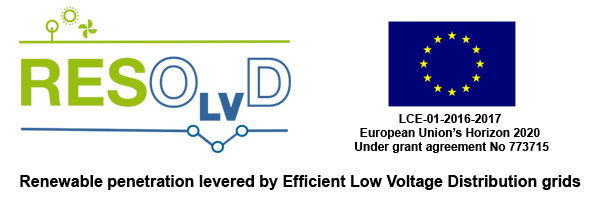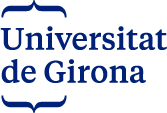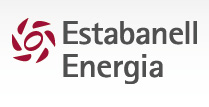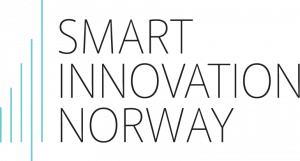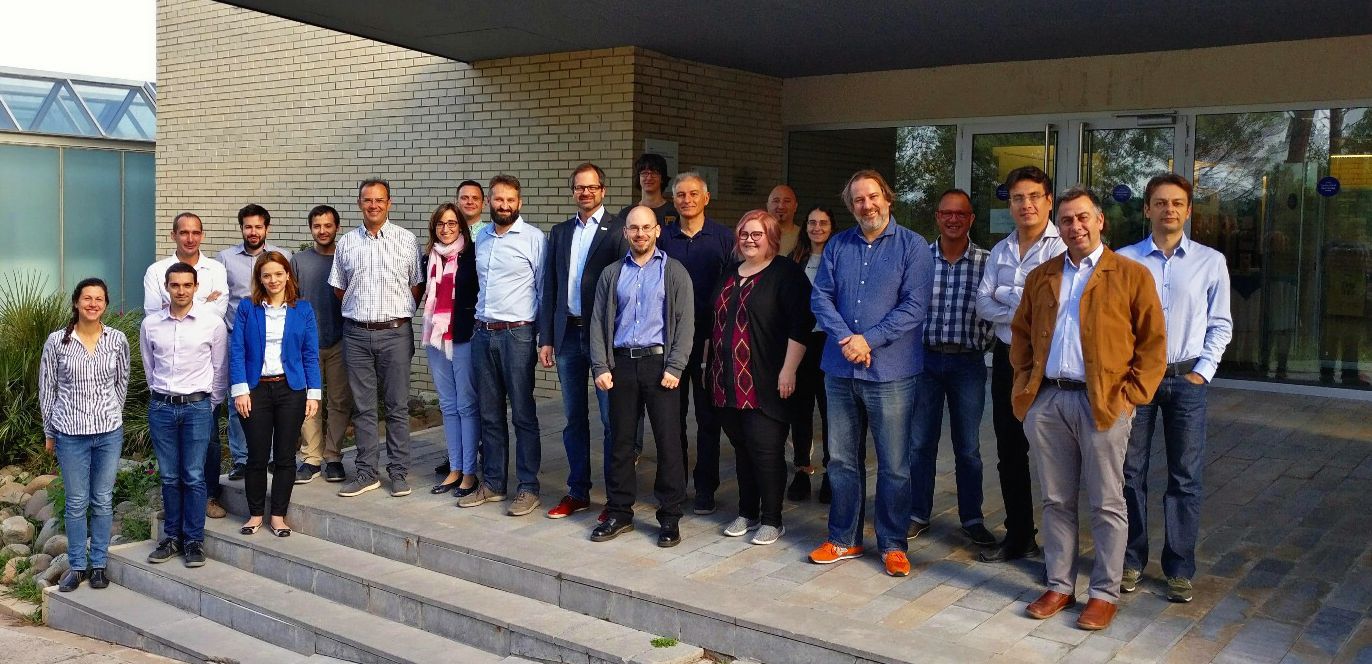
Universitat de Girona (UdG)
The University of Girona, participates in the RESOLVD project through the eXiT group (http://exit.udg.edu), Control Engineering and Intelligent Systems, of the Institute of Computer Science and Applications (http://iiia.udg.edu). The main research activity of the group is focused on the application of artificial intelligence principles (data mining and knowledge discovery, qualitative reasoning, case based reasoning, auctions, etc.) in process supervision, monitoring and scheduling (power distribution networks, waste water treatment plants, energy efficient building, European rocket ARIANE, plastic injection machines, blast furnaces, etc). The group has a solid background in power distribution systems due to its participation in several projects in application domains related with this LCE01 topic. UdG is the Project Coordinator and its scientific contribution, as WP3 leader, is mainly focused on the development of short term generation and demand forecasting methods, grid operation scheduling algorithms and multivariate statistical models to detect abnormal variations and estimation of the optimal grid configuration to maximise the hosting capacity of a given low voltage grid.
Web: http://exit.udg.edu/
Intracom Telecom (ICOM)
Intracom SA Telecom Solutions (ICOM) is the largest multinational provider of telecommunications products, and integrated ICT solutions & services in Greece with a proven track record of over 35 years of international presence and more than 100 customers in Eastern Europe, the Middle East, and Asia. Its expertise lies in the development of telecommunication products, smart cyber-physical systems and end-to-end integrated solutions. ICOM has a vast experience in designing, developing and producing state-of-the-art telecommunication and energy management equipment, and has combined its expertise in those two fields in order to meet the demands of the evolving market domain related to the Smart Grids. The company’s electronic energy meters (SEM series) offer a complete solution that overcomes the constraints of the old type electricity meters. ICOM’s product portfolio also includes ripple control receivers DT-I-3175 that enable centralized control by the power utility of multi-tariff meters, street lighting control and switching of heavy loads according to the total energy being consumed in the network. The company also participates in the integration, deployment and operation of the AMI/AMR system of the Greek DSO. ICOM will be responsible for the design and implementation of a platform that facilitates the integration of the various different components and services that will be implemented in the project (WP4).
Web: http://www.intracom-telecom.com/
Joanneum Research (JR)
JOANNEUM RESEARCH, offers applied research and development for small and medium-sized enterprises, supplemented by custom-designed technical business consulting and vast expertise in interdisciplinary management of complex research contracts at national and international levels. The DIGITAL Institute for Information and Communication Technologies specialises in web technologies, image, video, acoustic signal processing together with remote sensing, communication, human factors and security technologies. These technologies are implemented in hardware and software, leading to the development of application oriented solutions using scientifically state-of-the-art methods. A team of experienced software engineers together with experts in information and network security, specialized in security models for critical infrastructures and data analytics for cyber incident detection, can draw on their experience in risk analysis and security modelling for critical infrastructures in domains ranging from industrial control systems to smart buildings and from energy systems to smart mobility. JR’s goal to establish efficient and effective cyber security protection mechanisms for the RESOLVD project. This includes a state of the art security setup of selected communication channels, therefore contributing to functional and interoperability requirements, design and involvement in engineering activities from the beginning. JR is resposnible for WP7.
Web: https://www.joanneum.at/
Estabanell Energia (EYPESA)
Estabanell y Pahisa Energia, S.A. (EYPESA) combines the roles of Distribution Systems Operator (DSO) and retailer, in the electricity domain, deploying a customer focused relationship marketing, and telecom operator, providing dark fiber and PLC based telecommunications. The main business activity is electricity distribution, but for the last ten years it has been collaborating with several technological sectors to test and develop new telecommunication technologies over the MV grid using PLC (Power Line Communications). Since the technology and equipment became available, EYPESA technicians have been performing pilot tests related to remote management, having attained sufficient knowledge to proceed to systematic deployment while aware of the important challenges of rural areas, dispersed communications and respect for the environment. EYPESA is a founding member of the national association of small independent distributors ASEME and is also a member of the GEODE association, which comprises of European local distributors serving over 100 million customers. EYPESA has an essential role in definint specifications and equirements related to operation of the LV grid and leads and coordinates the activities for validation in relevant environment (WP5).
Web: https://www.estabanell.cat/corporativa/
Universitat Politècnica de Catalunya (UPC)
Created in 2001, CITCEA-UPC is a research centre of the UPC devoted to innovation and technological transfer to the industry. Currently, eight CITCEA-UPC members belong to the staff of professors of UPC and the rest of the team consists of engineers, PhD students and master students, more than sixty people. The group activity is focused on mechatronics and enertronics fields. Beside the research and innovation activities of the centre, the professors own a Spin-off company called TeknoCEA that is in charge of transferring research results to the market. UPC is the leader of WP2 and will develop the power electronic device, doing research in new semiconducting devices (SiC, GaN), novel control strategies and the use of heterogeneous storage devices, including the local EMS. The UPC will contribute to the design of the system architecture. Dissemination and communication actions will be as well performed.
Web: http://www.citcea.upc.edu/
Smart Innovation Norway (SIN)
Smart Innovation Norway (SIN) hosts NCE Smart Energy Markets; Norway’s leading cluster of industries and academic institutions within Smart Grid and Smart Energy Market Research and Innovation. SIN develops smart and sustainable solutions through research-based innovation and business development. Emphasis is on techno-economic models and analysis, business intelligence, prosumers and user flexibility. It holds key competences in relevant and applied R&D, entrepreneurship, intrapreneurship and process development to cater for new businesses based on research results generated. Its history is rooted in a long tradition of cutting-edge energy-related developments, stemming from the Institute for Energy Technology (IFE) in Halden in the 1980s, including the world’s first ICT system for competitive energy trading in a deregulated electricity market (1991), and the world’s first ICT system for emissions trading (2005). SIN and the associated cluster have long traditions of creating energy related spin-outs around new products and technologies. These include software and engineering companies like Scandpower, Hand-El Scandinavia, CognIT, MoreCom, Communicate, Navita/Brady, Miriam, eSmart Systems, Tiny Mesh, and more. Together with SINTEF and Narvik University College, Smart Innovation Norway was a founding partner of the Norwegian Smart Grid Centre. SIN will be responsible for the analysis and design of business models and will be utilising its cluster management experience and network for underpinning activities which reinforce the exploitation potential of RESOLVD. SIN will be the leader and main contributor of WP6.
Web: http://smartinnovationnorway.com/
Comsensus (CS)
ComSensus is a high tech start-up company founded in 2011 focused on the development of highly customized products and solutions for remote monitoring and control. The portfolio of ComSensus products includes the BEEP system for remote monitoring of beehive conditions, VESNA embedded system platform for development and prototyping that is co-developed with Jozef Stefan Institute, and PMC and SPM modular devices for synchrophasor and power quality measurements with load control. The custom developed cloud services are based on Node.js and available modules, including QMiner stream analytics. ComSensus will lead WP1 in which all participating partners will specify the elements constituting the proposed solution, their integration and interactions. The main contribution of ComSensus is in WP3 where it will develop and implement a prototype of Phasor Measurement Units with custom signal processing to support grid fault detection and self-healing control.
Web: http://www.comsensus.eu/
Partners’ expertise
| Disciplines | Partner |
|---|---|
| Power systems: supporting operation principles, theory and components of the electric system and in particular the LV grid. Protections, power flows, power quality, regulations, etc. | UPC, UdG, CS, EYPESA |
| Metering and power electronics: to enable system-level observability in real-time and toact on the physical network and managing power (power converters) with advanced conversion technologies (new materials like SiC), high frequency commuting, DAB, novel control strategies | UPC,CS |
| Battery technologies: knowledge required to select appropriate technologies that allow the incorporation of batteries in power electronic devices and flexibility management in the grid within the required time intervals. | UPC |
| Computer engineering: computers architectures, DSP, microprocessors, data acquisition hardware, communication interfaces, etc. To implement control logic of power electronic devices and storage management system and integration. | UPC,CS |
| ICT, allowing communicating hardware devices with DEMS through a variety of supports (PLC, wireless, o.f., microwaves) and protocols. | JR,ICOM,CS |
| Cyber security, at both hardware and software level. | JR |
| Software engineering, to guarantee integration at different interoperability levels. | ICOM |
| Signal processing, artificial intelligence and Data mining, to design and implement decision support mechanisms based,on optimisation and machine learning paradigms | UdG,CS |
| Business and innovation disciplines: to guarantee a market oriented solution from the requirements to the validation and regulation. | SIN,EPESA |
